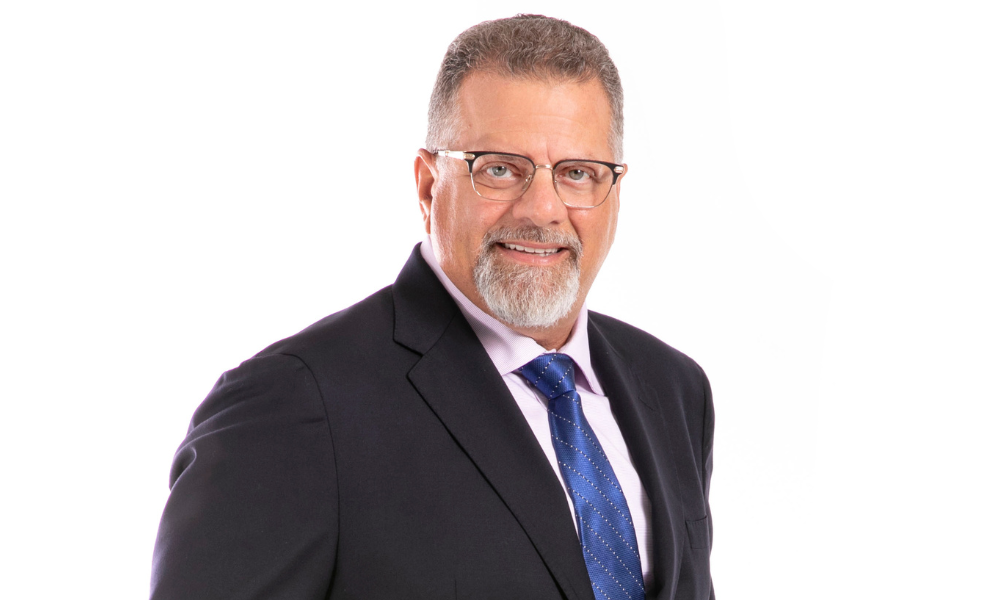

Ed Cofrancesco is a seasoned financial executive with extensive expertise in equity trading, consulting, and operational leadership. But it’s his experience of human behavior that gives him an extra edge; in particular, the emphasis he puts on setting expectations.
The CEO and president of Orlando, Florida-based International Assets Advisory knows failing to temper assumptions of outsized returns, or the risks involved, is a recipe for disaster and that clients often enter alternative investments without fully grasping the risks involved.
“The greatest wealth in history has been created through private equity and real estate,” he said. “But that doesn’t come without significant risks. How many times did people fail before they succeeded? Henry Ford failed multiple times before the Model T. Show me someone who hasn’t failed, and I’ll show you someone who hasn’t tried.”
Despite the allure of potential high returns, Cofrancesco emphasizes transparency. “We write up extensive disclosure lists for clients and go over them carefully.” This ensures that clients are informed about the risks versus rewards. “It’s about setting realistic expectations to help them reach their goals,” he explained.
Clients would be wise to listen. Cofrancesco previously served as EVP and COO at International Assets Holding Corp., where he boosted trading revenues by 1,500 percent and led the firm to profitability. He has also held key roles at Lehman Brothers and Raymond James, managing large-scale international trading operations. With Series 7, 8, 24, 55, and 63 licenses, he is vastly experienced and knowledgeable.
Cofrancesco approaches the evolving landscape of asset management with a direct and methodical style. As alternative investments such as private equity and hedge funds become more accessible, his strategies have focused more and more on education, reducing inefficiencies, and leveraging technology.
“It’s important that you educate your advisors on the nature of these products or particular products you allow on the platform,” Cofrancesco said. “If you don’t know it, how can you know it’s appropriate for your client?”
Cofrancesco has also zeroed in on reducing intermediaries in investment structures, which he sees as a significant challenge.
“Too many intermediaries in a product erode returns, raise costs, and ultimately defeat the purpose of alternative investments,” he explained. The firm’s approach involves forming special purpose vehicles (SPVs) and engaging in co-investment opportunities to provide direct access to higher-quality options.
“More and more, we’re looking at products with fewer intermediaries to enhance client outcomes,” he added.
From an operational perspective, technology, particularly artificial intelligence, plays an increasingly critical role in the firm’s operations.
“AI helps us formulate recommendations, create better calendar systems, and even uncover what clients really need,” Cofrancesco said. By assessing psychological profiles, AI enables advisors to tailor investment strategies. “AI can ask the same question in different ways to uncover risk tolerance,” he explained.
However, Cofrancesco is keenly aware of technology’s limitations. “Clients lie. They don’t intentionally lie, but they lie to themselves,” he said. One of AI’s strengths is that it can identify discrepancies between a client’s stated goals and their actual behavior. But he underscored that human judgment remains irreplaceable. “AI is a tool, not a replacement.”
Clients’ attitudes and decisions can evolve as they accumulate wealth – something advisors should be attuned to deal with. Some just want to play defense and preserve what they have, but others take a more aggressive approach.
“Look at Elon Musk,” Cofrancesco said. “Even when he could afford to stop, he keeps pushing. He doesn’t play defense. There’s no right or wrong. It’s about what’s right for the individual.”
As markets grapple with uncertainty around threatened tariffs and geopolitical tensions, it’s easy to be gripped by a sense of lack of control. How can clients prepare? Cofrancesco leans on his belief that it’s vital to have a Plan A, Plan B, and even a Plan F.
Drawing on his time in London, he added: “I carried an umbrella everywhere – not because I expected rain, but because it’s better to have it and not need it than the reverse. It’s not about being paranoid, but about being prepared.
The same calculated pragmatism informs his leadership style and approach to alternative investments. “It’s not about taking no risk; it’s about taking the right risks.”

Chasing productivity is one thing, but when you're cutting corners, missing details, and making mistakes, it's time to take a step back.

It is not clear how many employees will be affected, but none of the private partnership’s 20,000 financial advisors will see their jobs at risk.

The historic summer sitting saw a roughly two-thirds pass rate, with most CFP hopefuls falling in the under-40 age group.

"The greed and deception of this Ponzi scheme has resulted in the same way they have throughout history," said Daniel Brubaker, U.S. Postal Inspection Service inspector in charge.

Elsewhere, an advisor formerly with a Commonwealth affiliate firm is launching her own independent practice with an Osaic OSJ.
Stan Gregor, Chairman & CEO of Summit Financial Holdings, explores how RIAs can meet growing demand for family office-style services among mass affluent clients through tax-first planning, technology, and collaboration—positioning firms for long-term success
Chris Vizzi, Co-Founder & Partner of South Coast Investment Advisors, LLC, shares how 2025 estate tax changes—$13.99M per person—offer more than tax savings. Learn how to pass on purpose, values, and vision to unite generations and give wealth lasting meaning
